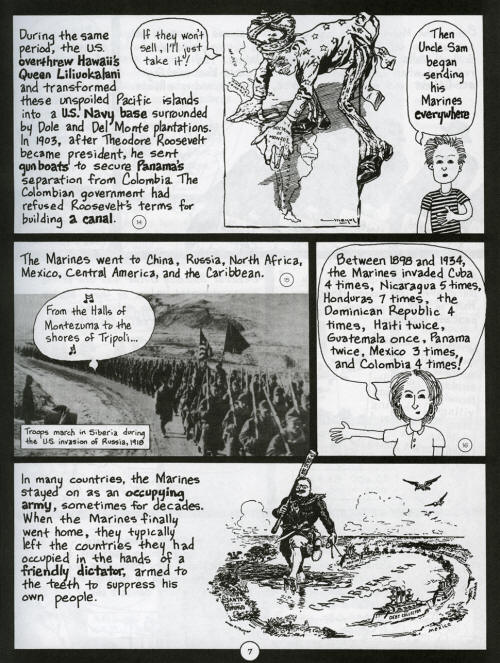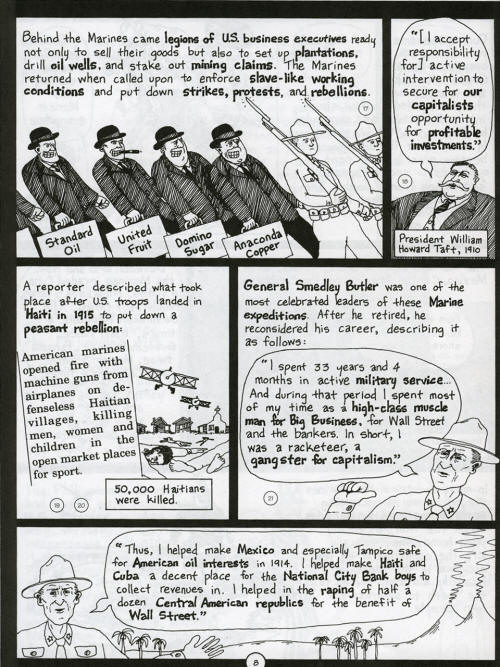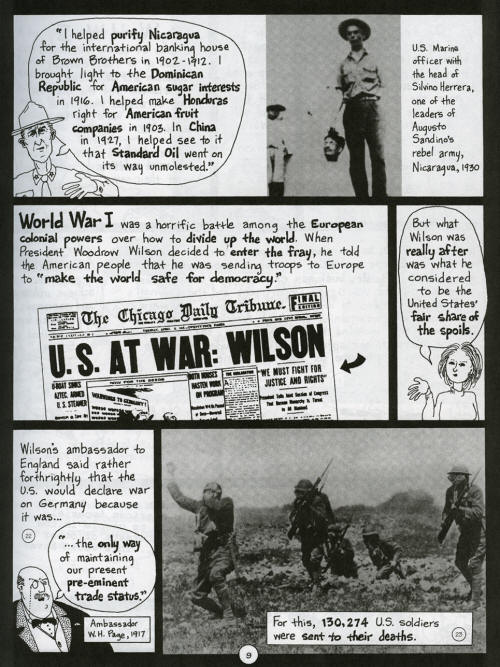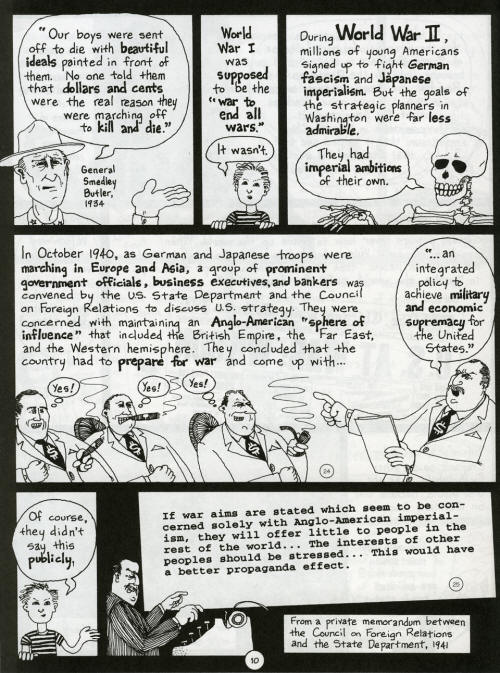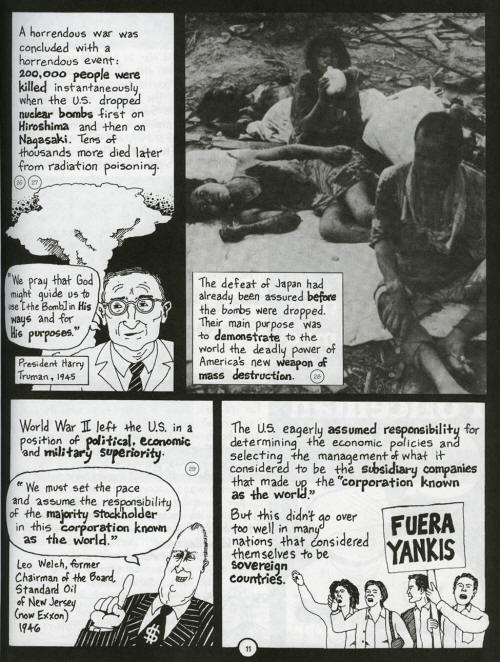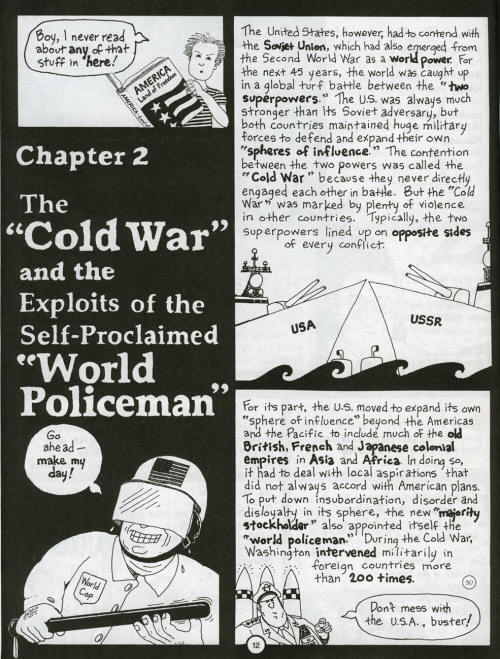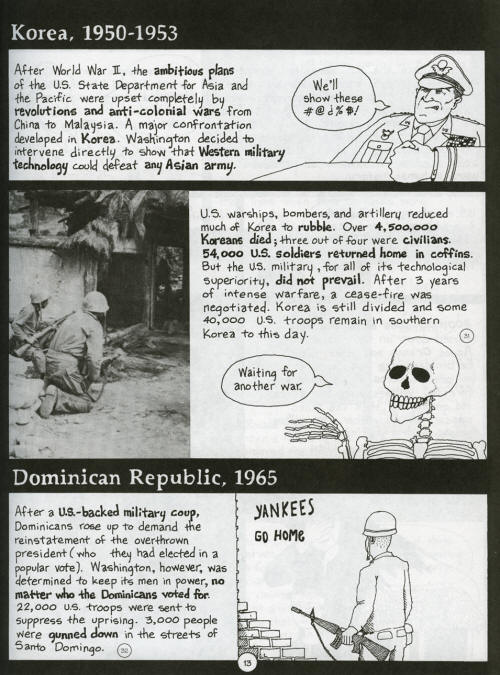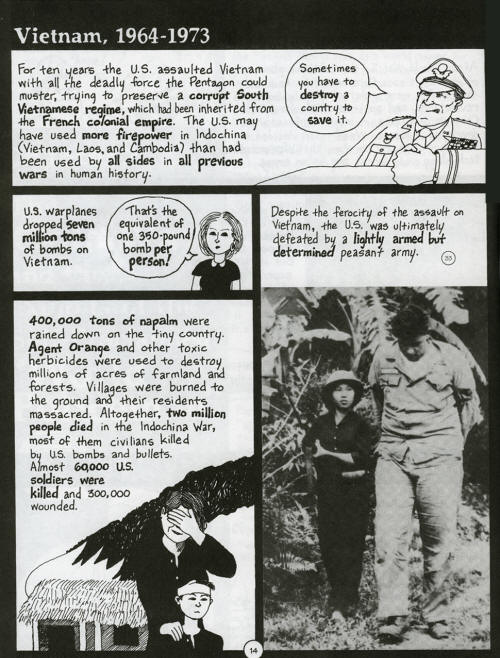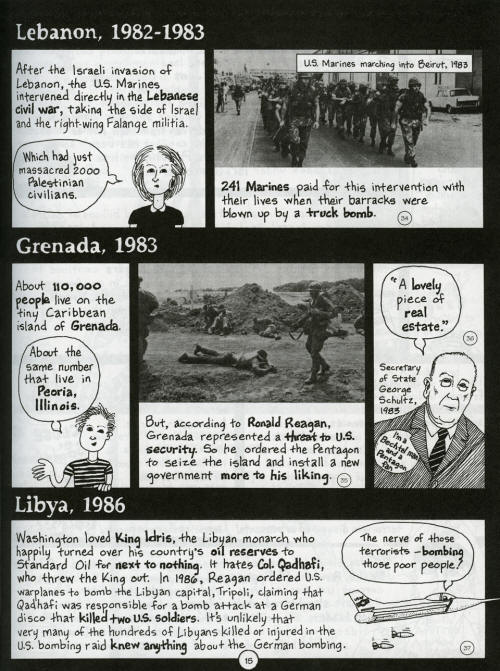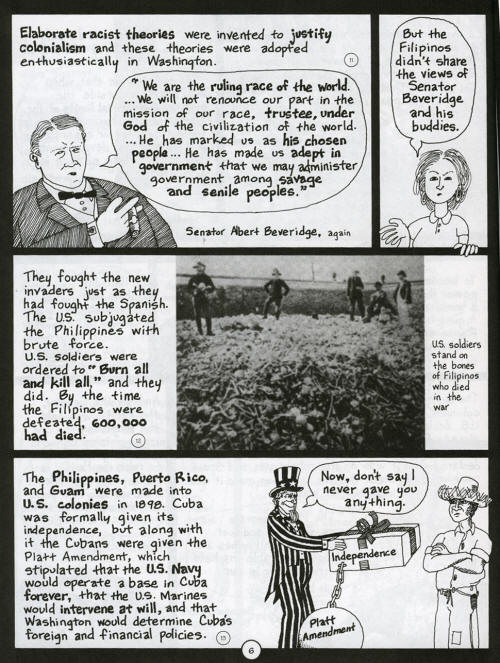
Elaborate racist theories were invented to justify colonialism and these theories were adopted enthusiastically in Washington. [11]
"We are the ruling race of the world .... We will not renounce our part in the mission of our race, trustee, under God of the civilization of the world ... He has marked us as his chosen people ... He has made us adept in government that we may administer government among savage and senile peoples." (Senator Albert Beveridge, again)
But the Filipinos didn't share the views of Senator Beveridge and his buddies.
They fought the new invaders just as they had fought the Spanish. The U.S. subjugated the Phillippines with brute force. U.S. soldiers were ordered to "Burn all and kill all, and they did. By the time the Filipinos were defeated, 600,000 had died. [12]
U.S. soldiers stand on the bones of Filipinos who died in the war.
The Philippines, Puerto Rico, and Guam were made into U.S. colonies in 1898. Cuba was formally given its independence, but along with it the Cubans were given the Platt Amendment, which stipulated that the U.S. Navy would operate a base in Cuba forever, that the U.S. Marines would intervene at will, and that Washington would determine Cuba's foreign and financial policies. [13]
[Uncle Sam says to a Cuban:] Now, don't say I never gave you anything.
Independence-Platt Amendment.

